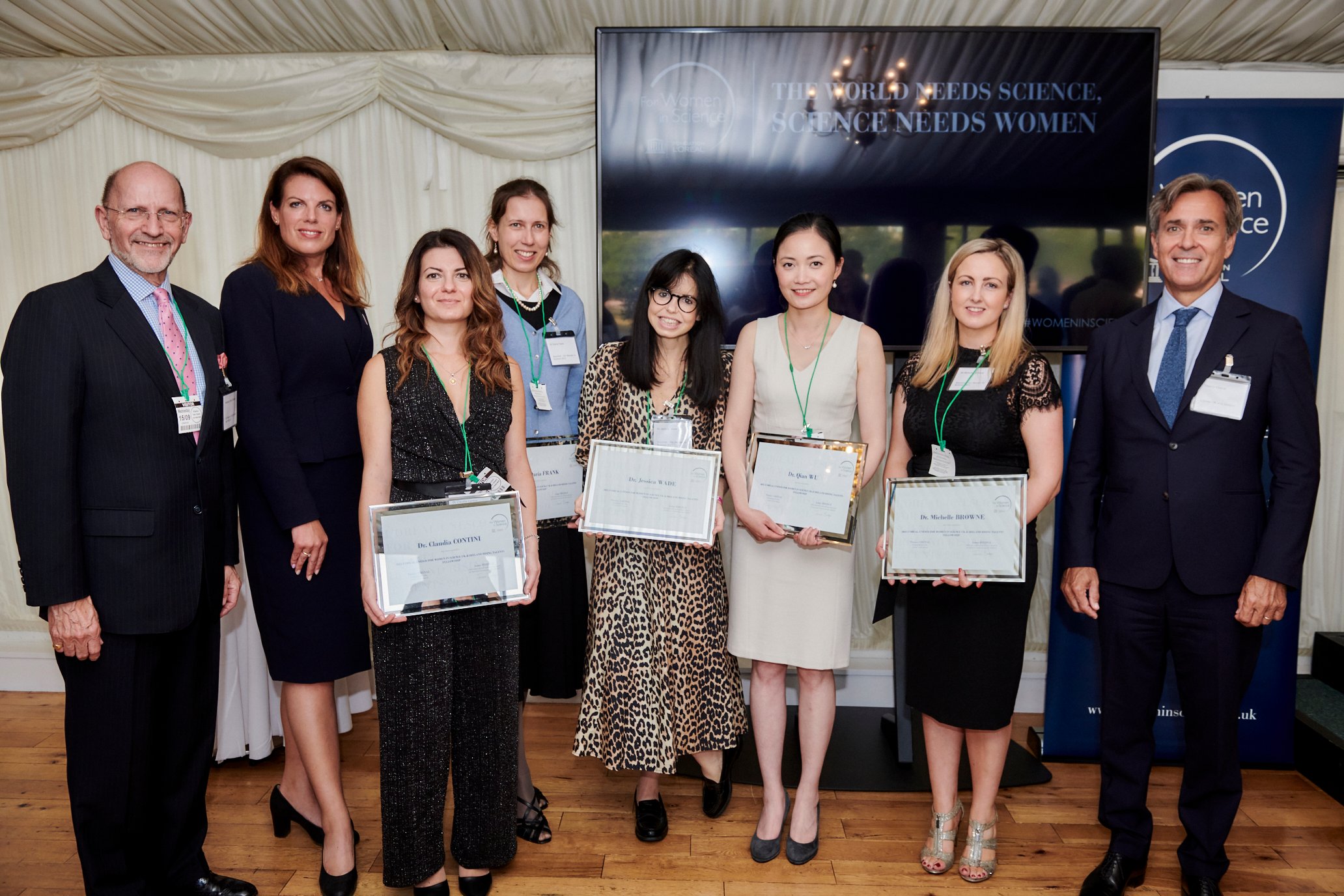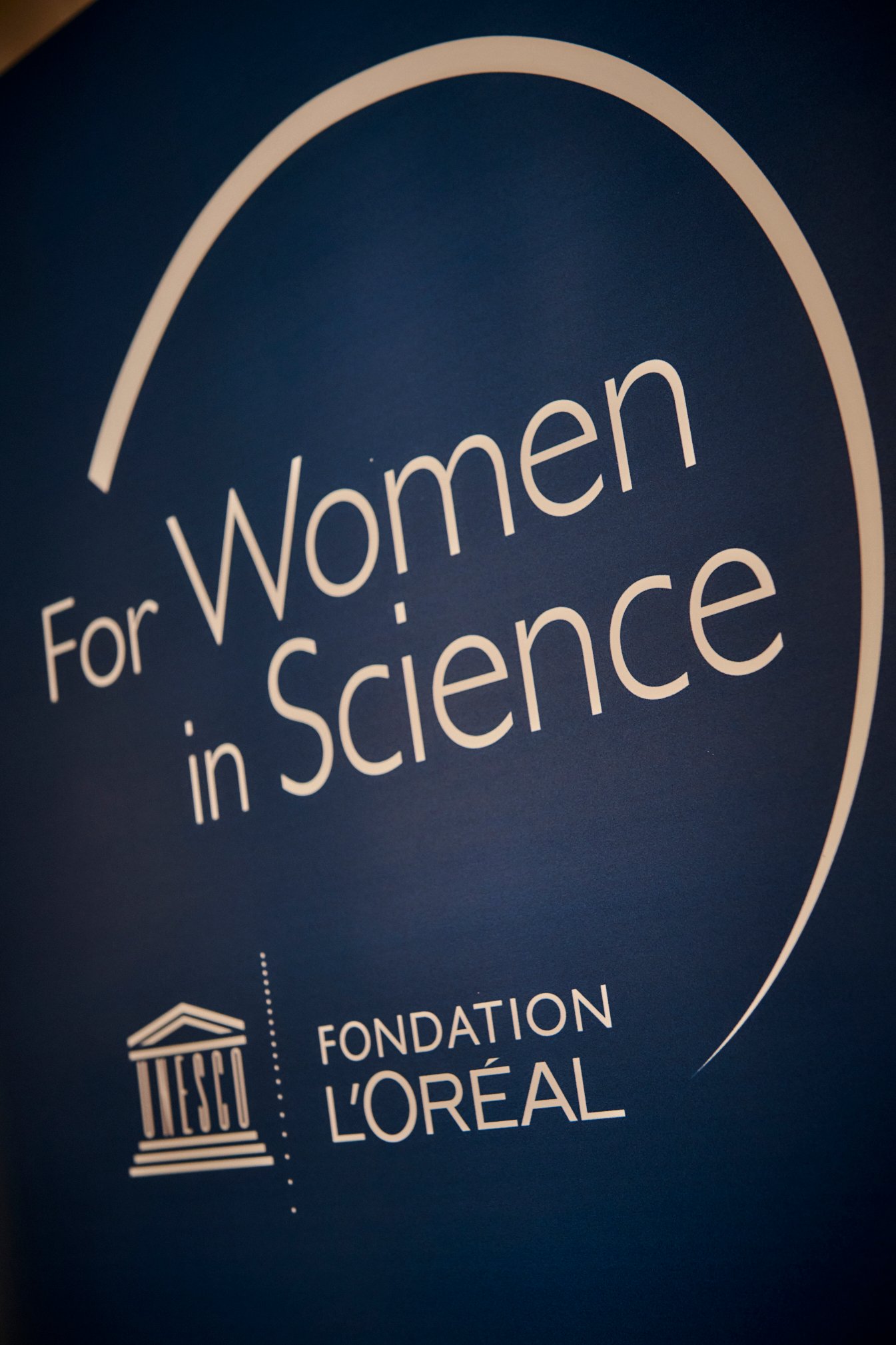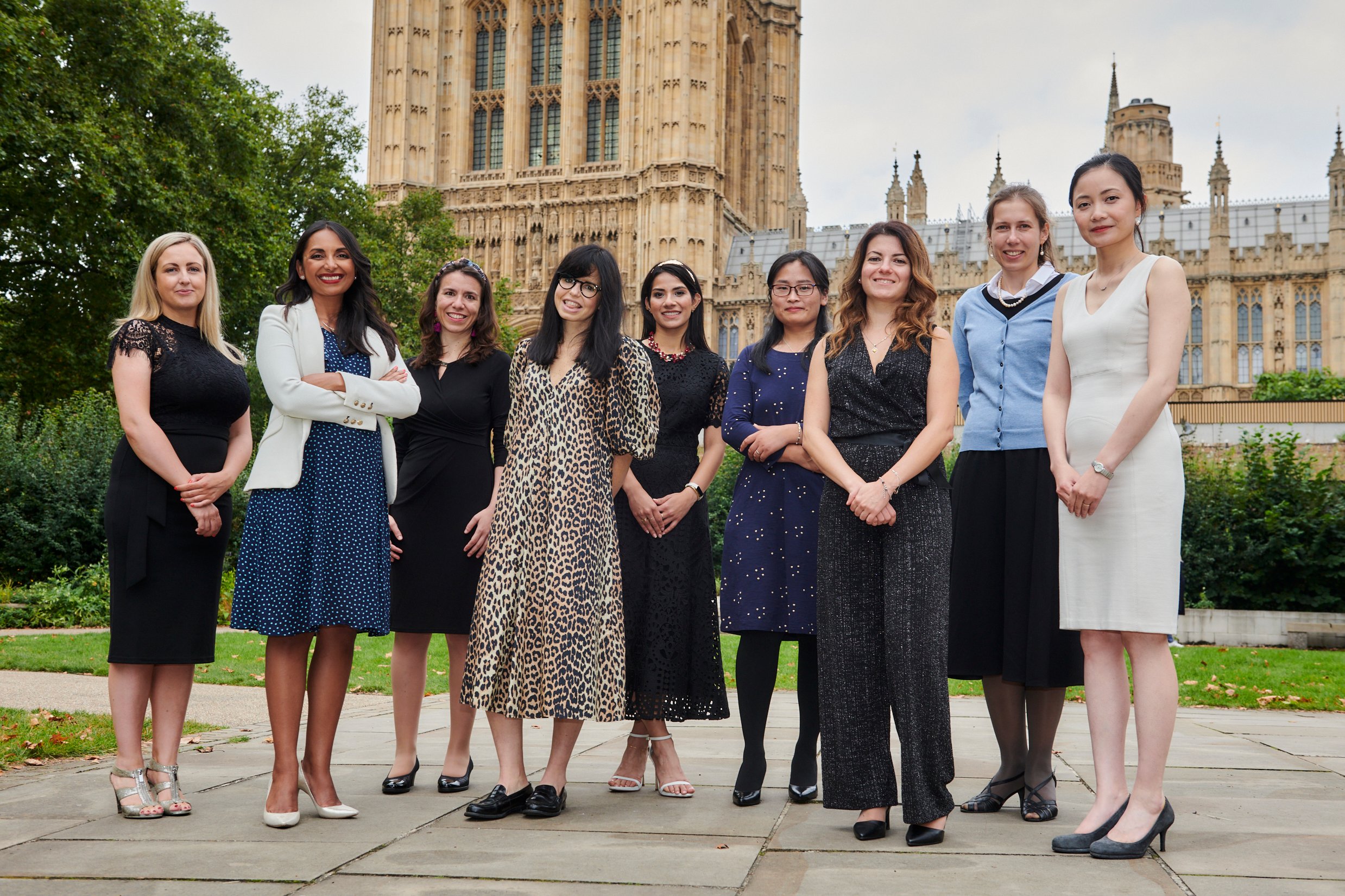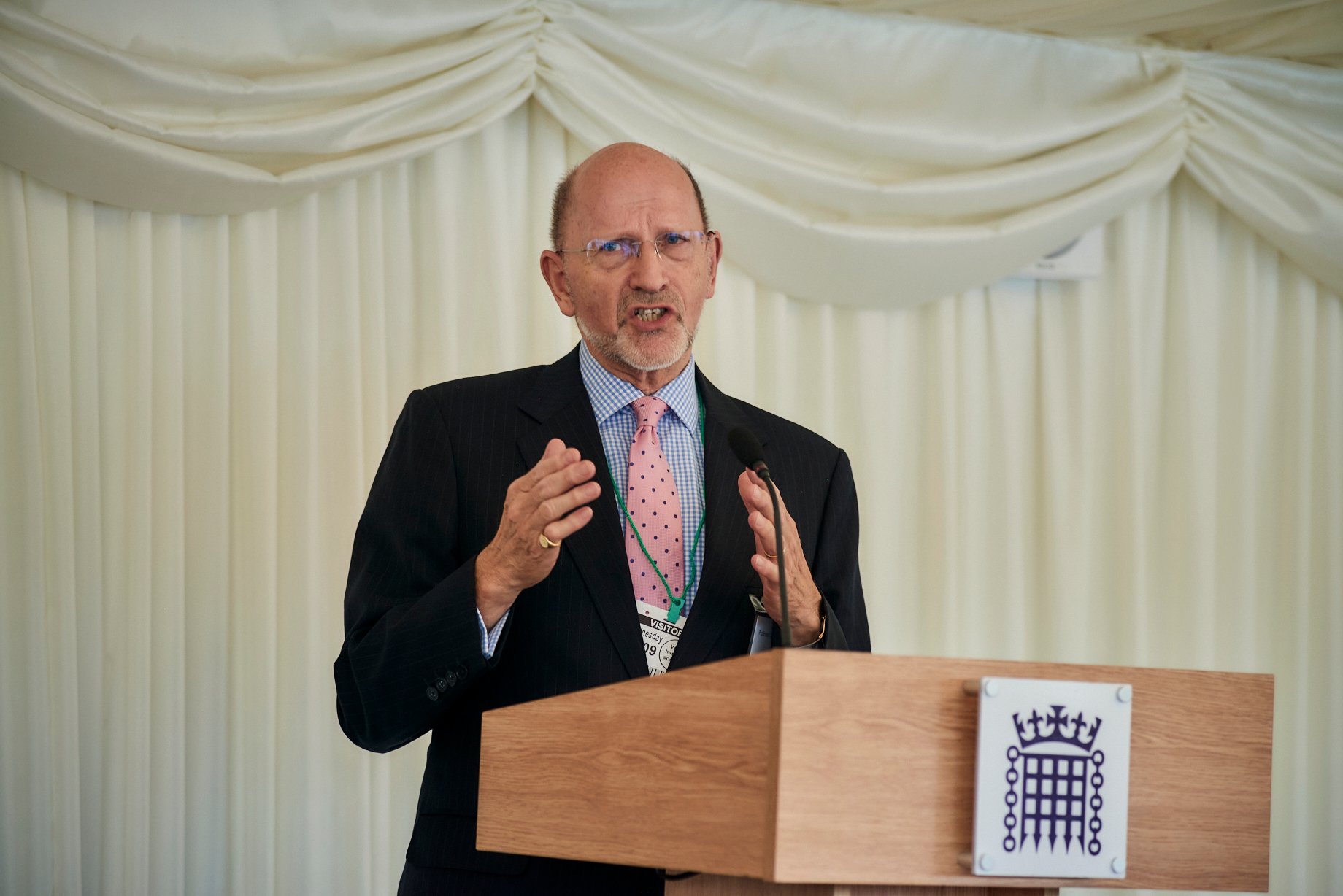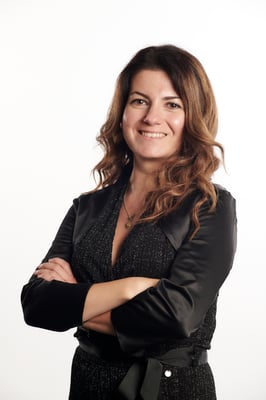September 20, 2021 – 15 min read
Five women scientists have been awarded the 2021 L’Oréal-UNESCO For Women in Science fellowships.
For Women in Science
The programme, a partnership between L’Oréal UK & Ireland, the UK National Commission for UNESCO and the Irish National Commission for UNESCO, with the support of the Royal Society, offers grants to promote, enhance and encourage the contribution of women pursuing their research careers in the UK or Ireland.
UK and Ireland Rising Talents Awards
Five grants have been awarded to outstanding female postdoctoral scientists in the fields of Physical Science, Engineering, Mathematics and Computing, Life Science, and Sustainable Development. These fully flexible Fellowships are each worth £15,000 and are tenable at any UK or Irish university or research institute to support a 12-month period of research.
Engineering Prize
Dr Claudia Contini
Imperial College London
Dr CLaudia Contini is a research associate in Chemical Engineering at ICL and is Director of the Association of the Italian Scientists in the UK. She obtained a PhD in Physical Chemistry at UCL and a ISSF Welcome Trust Fellowship at ICL. Dr Contini has independently secured multiple research grants and numerous international awards, including her research in the UK being recognised by the Italian Embassy in London.
Dr Contini’s research aims to set inanimate matter in motion at the nano and microscale. Realising an artificial motile system, controlling its motion and mimicking the biological communication, will push the boundaries of scientific discovery and pave the way for biomedical applications.
Life Sciences Prize
Dr Qian Wu
University of Leeds
Dr Qian Wu is a structural biologist studying DNA repair. Dr Wu received her PhD from Professor Sir Tom Blundell’s group in the Department of Biochemistry at the University of Cambridge. She is currently a University Academic Fellow in the School of Molecular and Cell Biology at the Astbury Centre for Structural Molecular Biology at the University of Leeds.
Dr Wu’s research aims to understand the molecular mechanism of DNA repair for double-strand breaks and develop protein tools that enable us to investigate the regulation of repair pathway choice.
Mathematics and Computer Science Prize
Dr Daria Frank
University of Cambridge
Dr Daria Frank completed her PhD studies in Applied Mathematics at the University of Cambridge and completed her first post-doctoral appointment in Environmental Fluid Dynamics. In 2020, Daria became the Sultan Qaboos Early-Career Research Fellow and College Lecturer in Mathematics at Corpus Christi College in Cambridge. Dr Frank’s research focusses on fundamental environmentally motivated fluid dynamical problems related to turbulent and multiphase flows.
With her research proposal, Daria intends to study how multiphase jets and plumes transport contaminants and re-distribute them in the environment. The main goal is to understand how these flows can be actively controlled in order to protect our environment by either inhibiting or enhancing the contaminants transport.
Physical Sciences Prize
Dr Jessica Wade
Imperial College London
Dr Jessica Wade is an Imperial College Research Fellow in the Department of Materials at Imperial College London. Her research considers new materials for optoelectronic devices, with a focus on chiral organic semiconductors. For her PhD Jess concentrated on new materials for photovoltaics and the development of advanced characterisation techniques to better understand their molecular packing. Outside of the lab, Dr Wade is involved with several science communication and outreach initiatives. She is committed to improving diversity in science, both online and offline.
The detection of weak magnetic fields is central to many technologies, from low-power computation and memory devices to brain imaging and materials safety testing. In an effort to realise low-cost, light-weight and ultra-sensitive magnetic field detectors, Dr Wade will make use of the remarkable properties of conjugated organic materials. Specifically, she plans to take an optical approach to magnetic field sensing via a magneto-optic phenomenon known as Faraday rotation.
Sustainable Development Prize
Dr Michelle Browne
Trinity College Dublin
Dr Michelle Browne is currently a Marie Skłodowska-Curie Individual Fellow in Trinity College Dublin (TCD), Ireland, under the mentorship of Prof. Valeria Nicolosi. In 2017, she obtained a Ph. in electrochemistry and materials science from TCD. From 2017 to 2020, Michelle conducted research in the field of electrochemical energy conversion in Queens University Belfast and in the University of Chemistry and Technology Prague as a postdoctoral researcher.
Dr Browne’s current research remit is focused on the production of green (clean) hydrogen in water electrolysers for the generation of electricity to replace fossil fuel-based energy production routes for various applications such as automotive and infrastructure. Her proposed research is focused on integrating electrolyser devices into academic driven water electrolyser research to develop inexpensive, scalable and sustainable materials to produce green hydrogen.
Share this via…


